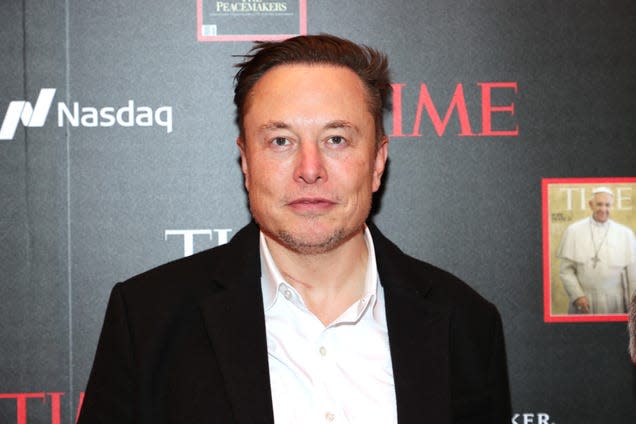Elon Musk is now banning journalists and competitors on Twitter

Elon Musk has been using the great powers conferred by his position as Twitter CEO in pursuit of his personal agenda. After spending the weekend leaking internal communications from Twitter’s previous administration to sympathetic writers, he then suspended the account of a 20-year-old college student tracking his private jet, and now he’s taken his ongoing perversion of free-speech principles to the next level.
On Thursday, Dec. 15, Twitter suspended the accounts of several journalists at major news organizations who have covered Musk or tweeted critically about him. Among those affected were the New York Times’ Ryan Mac, the Washington Post’s Drew Harwell, CNN’s Donie O’Sullivan, independent journalists Aaron Rupar and Tony Webster, Mashable’s Matt Binder, The Intercept’s Micah Lee, and former MSNBC host Keith Olberman.
Read more
Twitter did not immediately respond to a request for comment, but Musk tweeted to say simply that the “[s]ame doxxing rules apply to ‘journalists’ as to everyone else,” referring to the rules he introduced yesterday as justification for banning an account tweeting his private jet location.
“Criticizing me all day long is totally fine, but doxxing my real-time location and endangering my family is not,” Musk added in a separate tweet. There is no evidence that any of these journalists tweeted anything about Musk’s real-time whereabouts.
“I have no idea what rules I purportedly broke,” Rupar wrote in his newsletter Thursday.
Mac created a new account to tweet that he had been given no warning or explanation from Twitter. “I report on Twitter, Elon Musk and his companies. And I will continue to do so.”
The purge didn’t stop at journalists. Mastodon, the open source platform that saw a surge in registrations after Musk took over Twitter, also saw its Twitter account suspended, reportedly after it tweeted a link to the private jet tracking account on its own platform.
A hypocritical view of free speech
On Wednesday, Musk hand-crafted a new policy to justify suspending @ElonJet, the account tracking the publicly available location data of his private jet, as well as the personal account of the account’s creator Jack Sweeney. The new policy prohibits sharing real-time information about individuals. Musk claimed that @ElonJet’s posts led a stalker to a car carrying his young son, however there was a full day delay between Musk’s jet landing and the alleged stalker incident. Many of the journalists suspended were tweeting about Musk’s tiff with Sweeney, whom the billionaire threatened to sue.
While Twitter has a First Amendment right to moderate content as it sees fit free from government interference, Musk has run afoul of the broader free speech principles that he has claimed to support.
Musk constructed his $44 billion bid to buy Twitter around a vision for “free speech,” branding the previous incarnation of Twitter as censorious, especially toward right-wing views. Musk has repeatedly referred to Twitter as a “common digital town square” where people should be able to post their unfettered views without fear of a centralized power shooting them down.
However, Musk’s ill-defined new policy has become a thin veil for his own censorship of views and public participation he doesn’t like. The journalist bans on Thursday were yet another indication that Musk does not believe in any version of free speech except one that serves his ego and momentary caprices.
More from Quartz
Sign up for Quartz's Newsletter. For the latest news, Facebook, Twitter and Instagram.

